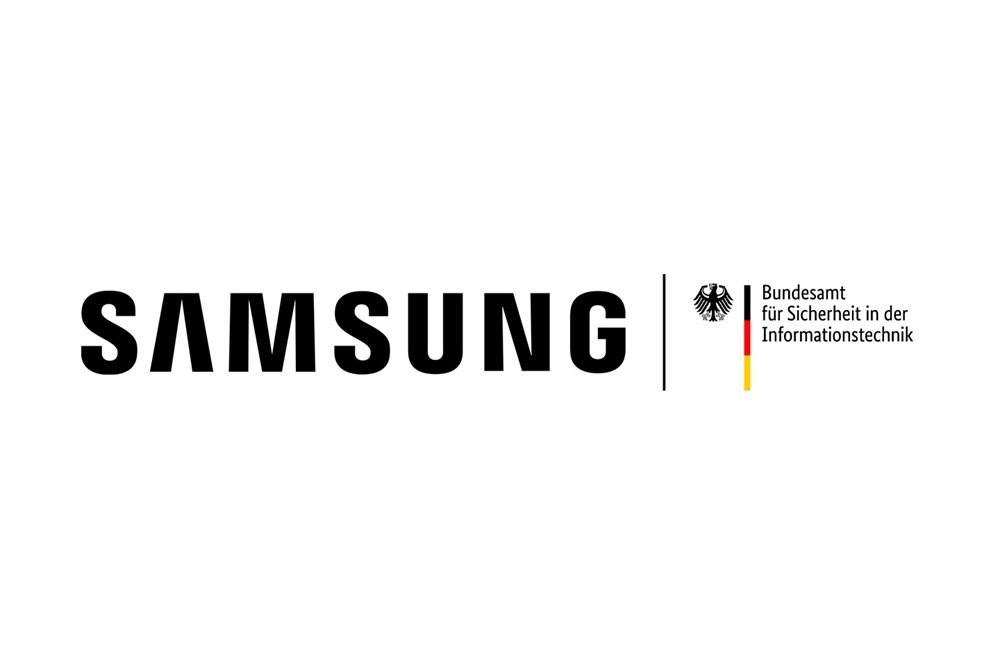
Samsung Electronics today announced that Samsung Knox Native Solution, a platform that enables fast and easily accessible secure communications tailored for governmental authorities and enterprises, has received certification from the Bundesamt für Sicherheit in der Informationstechnik (BSI), also known as the German Federal Office for Information Security. Developed in close collaboration with the BSI, the Knox Native Solution creates a dedicated, secure environment on mobile devices, delivering fortified security to meet extremely rigorous requirements. With certifications from numerous government bodies worldwide — including Australia, Canada, the Netherlands, the United Kingdom and the United States — Samsung continues to establish itself as a global leader in cybersecurity solutions.
Achieving official recognition for government use from a leading European security authority marks a significant milestone for the Knox Native Solution and reinforces Samsung’s trusted role in delivering secure, integrated solutions that meet the high standards for government and enterprise use. This certification also reinforces Knox Native Solution as a globally relevant model for organizations, including in key industries like energy infrastructure or public transportation, or those seeking robust, reliable and ready-to-deploy security for optimized mobile communications.
Security Developed in Collaboration With the BSI
Previously, achieving government-grade secure mobile communication on Android-based devices often required the use of external SD cards, additional software and multiple PINs, resulting in a cumbersome manual process with high costs and prolonged approval cycles for security solutions. Any updates to third-party security solutions would require the entire device to undergo re-certification, adding further complexity to the process. To address these challenges, Samsung collaborated with the BSI, which is recognized as the leading authority for security policies and certifications across Europe and key global industries. Together, they developed a pre-configured, government-grade setup that aligns with Germany’s rigorous security standards and sets the standard for secure devices and solutions worldwide.
This innovative platform incorporates advanced features, including the embedded Secure Element (eSE),1 which integrates the BSI Java Card Applet and is certified at the industry-leading Common Criteria Evaluation Assurance Level (CC EAL) 6+. With eSE, Knox Native Solution establishes a dedicated security zone within the device, helping to ensure data integrity, real-time threat protection and encrypted storage for sensitive communication channels. This platform doesn’t require third-party applications or add-ons, enabling a tamper-resistant security environment for core functions like email, calendar and contacts — all built directly into the device.
Seamless and Secure Mobile Experiences
Knox Native Solution continues to cement the new industry standard for mobile security, making Samsung Galaxy devices the first within the Android ecosystem to successfully meet the strict security standards of the BSI utilizing eSE. Knox Native Solution enables organizations to deploy secure devices with minimal steps, eliminating the need for complex setups while ensuring high security standards. Using Samsung Knox’s built-in protections for data-at-rest, data-in-use and data-in-transit, this solution preserves a streamlined user experience without compromising security. A single PIN activation covers a wide range of work scenarios, and company-owned apps integrate seamlessly through the Knox Native Solution SDK, making advanced security feel effortless for users and administrators alike.
Knox Native Solution reimagines security evaluation processes on Samsung Galaxy devices for government and enterprise in Germany, requiring only newly updated apps to be reviewed and approved — empowering users with cost-efficient and optimized mobile solutions. By simplifying development and evaluation with pre-approved security features, Knox Native Solution enables even large device fleets with high security standards to be managed efficiently through Knox Suite, providing enterprises with centralized control over their security needs. As an established and trusted provider of secure mobile solutions to German government entities, Samsung remains committed to delivering robust and seamless mobile security for organizations worldwide.
Continued Trust in a Hyper-Connected World
This BSI certification stands as a testament to Samsung’s ability to meet top-tier government standards, exemplifying how enterprises and governments around the world can adopt secure, integrated mobile solutions. Building on this success in Germany, Samsung plans to expand the availability of Knox Native Solution to other regions, reinforcing its role as a global leader in secure, hyperconnected mobile ecosystems.
“We are honored to receive this certification from the BSI as proof of our commitment to meeting rigorous security standards and providing fortified mobile security solutions to a growing list of governments and enterprises worldwide,” said Tuncay Sandikci, Director of MX B2B at Samsung Electronics Germany. “In an increasingly hyperconnected world, we remain dedicated to empowering all users with secure, privacy-driven experiences that put transparency and user choice at the forefront.”
For more information about Samsung Knox, please visit samsungknox.com.
1 Galaxy S23 (all models), Galaxy S24 (all models), Galaxy Tab S8+ (German only) and Galaxy XCover6 Pro include the embedded Secure Element (eSE). Samsung plans to use eSE embedded devices for approved Knox Matrix security features and to continue to expand to additional models in the future.
This article was first published at Source link . You can check them out for other stuffs
